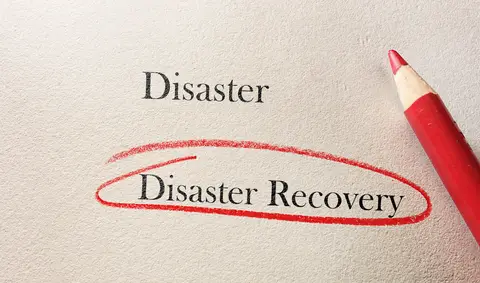 With the hurricane season underway, it’s a good time to think about being prepared for storms that can disrupt your business, as I discussed earlier. However, the attack in Orlando prompted me to think about another disruption for which you should be prepared and how to get back to business: terrorism. Fifty nine small businesses around the Pulse nightclub where the attack occurred were forced to close for 9 days while investigations were underway.
With the hurricane season underway, it’s a good time to think about being prepared for storms that can disrupt your business, as I discussed earlier. However, the attack in Orlando prompted me to think about another disruption for which you should be prepared and how to get back to business: terrorism. Fifty nine small businesses around the Pulse nightclub where the attack occurred were forced to close for 9 days while investigations were underway.
Business interruption insurance
If you’re forced to close for a time, will you be able to meet payroll and pay other expenses? A business owners’ policy (BOP) doesn’t automatically cover your for this contingency.
Check into business interruption coverage (also referred to as business continuation coverage) now. Be sure to understand fully what you are and are not covered for because losses from terrorism are not automatically covered; you have to pay for this type coverage. But even carrying the coverage is no guarantee that you’ll receive proceeds if terrorist activity occurs.
One report found that after the 2013 Boston bombing, about half of the businesses had their claims denied. This may have resulted from a strict reading of what constitutes losses under the terms of a policy. It probably did not result from an exclusion for acts of terrorism that is in most policies because the government never declared this to be a terrorist attack.
Federal assistance
While the SBA usually doesn’t make loans (it merely guarantees loans made by commercial lenders), it does offer two types of disaster loans to small businesses:
- Business physical disaster loans to help replace or restore damaged property.
- Economic injury disaster loans to alleviate an economic injury regardless of physical damage.
Both types of loans are low cost and long term. However, both are available only for a business located in a place that has been declared a federal disaster area. These SBA loans are available for businesses impacted by the Pulse shooting for counties under a disaster declaration.
State assistance
States may have their own disaster loan programs. In Florida, for example, there’s an emergency bridge loan program that was started after Hurricane Andrew in 1992 and has been activated 16 additional times in subsequent disasters, including the Pulse shooting. So the Small Business Development Center at the University of Central Florida and the Florida’s Department of Economic Opportunity have overseen the loan program for the current disaster, providing interest-free loans up to $25,000 for 6 months to small businesses that can prove they suffered an economic impact.
Crowdfunding assistance
Small businesses may be able to reach out to the public for help through crowdfunding. The record-breaking GoFundMe campaign to assist victims of the shooting and their families shows that the public is sympathetic to the plight of the affected.
Bottom line
Hurricanes, tornadoes, and other storms as well as fires aren’t the only types of disasters to prepare for. Unfortunately, the possibility of a terrorist attack impacting you directly is all too real now, so as the Boy Scouts say: Be prepared!


